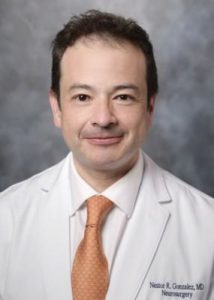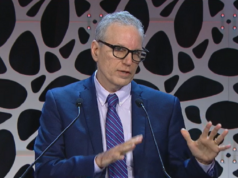
Results from a phase II clinical trial conducted by vascular neurologists at Cedar-Sinai, Los Angeles, USA, show there is potential to reduce the rate of recurrent stroke among atherosclerotic disease patients.
According to a press release from Cedar-Sinai, the phase II clinical trial demonstrated that a new procedure, encephaloduroarteriosynangiosis (EDAS), reduced recurrent stroke rates from 37% to 10.7%. The results of the study were recently published in the journal Neurosurgery.
“The EDAS procedure is unique in that it involves rerouting arteries from the scalp and membranes that cover the brain, to segments of the brain at risk of stroke,” said Nestor Gonzalez, director of the Cedars-Sinai Neurovascular Laboratory. “Similar to gardening, over time, new blood vessels form and create a fresh path for blood oxygen to reach the brain.”
According to Cedar-Sinai, this gardening-like surgical technique differs from current, conventional approaches to reduce recurrent stroke, which include intensive medical management and various procedures, ranging from angioplasty and stenting to direct bypass surgery.
“Your brain needs a steady supply of oxygen-rich blood in order to function properly,” said Keith Black, professor and chair of the Department of Neurosurgery at Cedar-Sinai. “This work is an important step in increasing the vital vessels in the brain and ensuring that patients with this complex condition have an innovative and minimally invasive option for care.”
According to the press release, the next step for Gonzalez and his team will be working with the National Institutes of Health, a funder of this work, to launch a large, multicentre phase III clinical trial at medical centres across the nation. These sites will allow willing patients with atherosclerotic disease to participate in clinical research.
“Clinical research is a critical component and a necessary step to advance the science and treatments available to patients with this unique yet common condition,” said Gonzalez. “As the trial expands from Los Angeles to other parts of the country, I hope patients consider participating in the study of this promising technique.”













